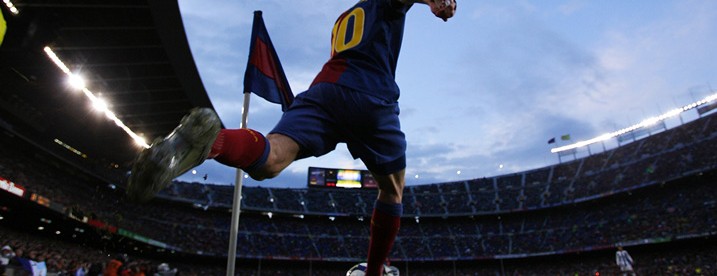WASHINGTON D.C. – Global Financial Integrity (GFI) presenta un importante análisis, resultado de entrevistas y encuestas con más de 250 expertos en crímenes financieros de América Latina y el Caribe. La investigación revela que los países de...
Global Financial Integrity is pleased to present a comprehensive survey of 250 financial crime experts in Latin America and the Caribbean. The survey shows that countries in the region need to address significant weaknesses in their effort to combat money laundering if corruption, which generates massive illegal proceeds, is to be curtailed.
By Max Heywood, Global Financial Integrity, August 12, 2014

Lionel Messi’s Tax Troubles Should Increase Pressure on Politicians to Curb the Abuse of Anonymous Companies
The ongoing prosecution of football super star Lionel Messi for alleged tax evasion made global headlines last week. Messi and his father Jorge are accused of evading 4.2 million euros (US$5.6m) in tax on sponsorship earnings in court documents submitted by the prosecutor.
The alleged tax evasion scheme was based on using a web of anonymous shell companies registered in tax havens such as Belize and Uruguay, as highlighted by our colleagues at Global Witness. These shell companies were linked to other anonymous companies in what the prosecutor calls “convenience jurisdictions” such as the UK and Switzerland.
Fraudulent Trade Misinvoicing Drained US$9.54 Billion in Illicit Money from Argentina from 2001-2010
Trade-Based Money Laundering Technique Siphoned US$4.69 Trillion from Poor Countries between 2001-2010; Facilitates Sex Slavery, Terrorism, Tax Evasion
WASHINGTON, DC – As the U.S. Department of Justice announced today that Ralph Lauren Corporation (Ralph Lauren) utilized fraudulent misinvoicing tactics to funnel bribes to Argentinean customs officials over the course of five years, Global Financial Integrity (GFI) noted that trade misinvoicing drained US$9.54 billion from the Argentinean economy between 2001 and 2010. The deliberate misinvoicing of trade documents is used to launder all types of illicit money, and it costs the developing world roughly US$4.69 trillion in illicit financial outflows from 2001 through 2010, according research by GFI, a Washington, DC-based research and advocacy organization.

